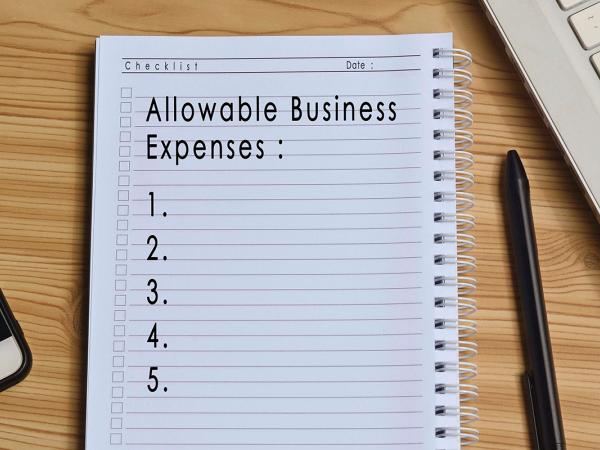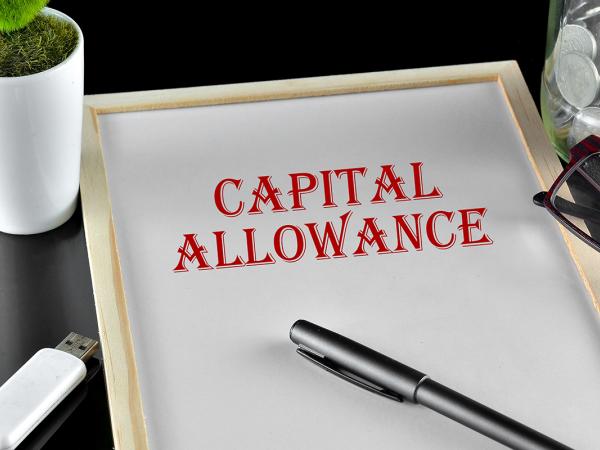Self-employment: stopping your business
This page covers tax issues when you decide to stop trading as a sole trader or partner in a trading partnership.

Content on this page:
Stopping trading
There are many reasons why you may stop your self-employment or stop being a partner in a partnership, including:
- Your business is making losses.
- You decide to retire.
- You sell your business to a new owner.
- You decide to work for someone else as an employee rather than run your own business.
We recommend that you obtain professional advice if you are selling your business or share in a partnership, or if you decide to incorporate and change your legal structure from self-employed or a partnership to a limited company.
This page is about when you have completely stopped your business. It may be the case that if you have sales income around the trading allowance threshold, then you may not need to complete a self assessment tax return each tax year. However, this is a different tax position to having completely stopped trading.
Notifying HMRC
You should tell HMRC when you stop your self-employment, otherwise they will just assume that your self-employment is ongoing and will continue to expect tax returns from you. As explained under the heading Self assessment tax return below, you will need to fill in a tax return for the year your self-employment ends – the exact date that you stopped being self-employed should be given (this will also help make sure you do not overpay Class 2 National Insurance contributions).
Depending on your business and individual circumstances, you may also need to notify other HMRC teams or government departments about stopping your self-employment, such as:
- VAT – if you are registered for VAT then you will need to notify HMRC that you have stopped trading or sold your business
- PAYE – if you have a PAYE scheme because you have employees then you will need to notify HMRC that you have stopped trading and so are no longer an employer
- Construction industry scheme (CIS) – if you are CIS registered then you will need to notify HMRC if you stop being self-employed or change from being a sole trader to a partner (or vice versa) or incorporate your business to a limited company.
- Universal credit – you will need to let the Department for Work & Pensions (DWP) know that you are no longer self-employed
- Tax credits – you will need to inform HMRC that you have stopped being self-employed
Self assessment tax return
You must complete a self assessment tax return for the last year you are trading. You should make sure that as far as possible you include all income and expenses relating to your trade and include the date you stopped trading on the tax return.
If you do not have another reason to complete a self assessment tax return, then this may be the last tax return you need to complete unless your circumstances change, such as starting a new self-employment. However, if after stopping your business you continue to receive a notice to file a tax return then you should contact HMRC asking them to cancel the notice, otherwise you will be expected to submit a tax return by the filing deadline.
If, after you have submitted your self assessment tax return, you receive trading income relating to the trade you have stopped or pay business expenses relating to your ceased business, then you may need to include this in a subsequent tax return (this is discussed in more detail under the heading Post-cessation income and expenses below).
There are other various things you need to be aware of to get your tax affairs correct when you cease trading:
Accounting period
Your final accounting period will be from the end of your last accounting period to the date you ceased trading. So, if you usually make your accounts up to 31 March each year and decide to stop being self-employed on 31 July 2024 then your accounts (and basis period) for your final period of trading will be 1 April 2024 to 31 July 2024.
Preparing your accounts
When preparing your accounts so that you can complete your final tax return, you need to make sure you include all the income and expenses relating to your last tax year of trading as far as possible (but see the heading below on Post-cessation income and expenses).
If you are using the accruals basis to prepare your accounts, then it should not matter if you receive payment for some self-employment work after you stopped trading, as the income should already be included in your accounts anyway.
If you are using the cash basis and receive income after you have stopped trading, then please see the Post cessation income and expenses heading below
As far as possible, you need to include all business expenses relating to your trade and this may involve future costs you know you will need to pay for, these are sometimes called post-cessation expenses. For example, you may have to continue to have professional indemnity insurance for a few years after you stop trading and so you should include this expense or a reasonable estimation of this cost in your final accounts.
You cannot have tax relief for expenses which relate to the cessation of trading.
Overlap relief
You will also need to consider whether you have overlap profits. These are profits which arise because you have paid tax twice on some of the same profits from self-employment. Whether or not you have overlap profits depends on what basis period you used when preparing your accounts.
When you cease trading, you will receive tax relief for these overlap profits (known as overlap relief). All overlap relief must be used in the 2023/24 tax year at the latest, as this is the transition year for moving to new basis period rules. We explain about overlap relief on our page basis period reform.
Losses
You may make a loss in your final tax year of trading. There are special rules about using losses made when you cease self-employment. We cover these on our Trading losses page.
Tax and National insurance
You will need to pay tax and National Insurance contributions (NIC) on your profits in the tax year you stop trading. If you are due to pay Class 2 NIC then you will only pay it on the weeks you are self-employed therefore it is important that you accurately complete the box on your tax return which asks for the final date of trading.
If you have stopped your self-employment because of financial problems and you are unable to pay any outstanding tax and NIC, you should contact HMRC as soon as possible. There is more information on our page Tax problems and debt.
It may also be the case that you are due a tax refund when your self-employment stops, for example, if you are a subcontractor who is registered under the Construction Industry Scheme (CIS). When completing your tax return, you should check your bank details are correct, especially if HMRC have previously repaid to a business bank account which is now closed as you have stopped trading.
Business records
You must keep your business records for at least the usual time period after stopping trading. So, if you stop trading during the 2023/24 tax year then you must keep your business records until 31 January 2030.
Post-cessation income and expenses
If you don’t prepare your final accounts using the accruals basis then it may be the case that not all your trading income and expenses relating to the final period of trading are included in your final accounts. Any income you receive after you have stopped self-employment is known as post cessation income, and any expenses you have to pay after you have stopped self-employment are known as post cessation expenses.
Income
If you receive post cessation income that hasn’t been included in your tax return for your final tax year of trading (for example you did not use the accruals basis to prepare the final accounts) then it is treated as trading income. This should be included as ‘Other taxable income’ (Box 17 on SA100) on the self assessment tax return. Post cessation income can be reduced by any post-cessation expenses which have not been accounted for.
If you were using the cash basis to prepare your accounts for your last tax year of trading, then you must continue to use the cash basis rules for any post-cessation income or expenses.
It is possible to make an election to treat any post-cessation income as actually arising during the final tax year of trading as long as the income was received within six years of stopping your self-employment.
The election must be made within one year following the 31 January after the tax year you received the post-cessation income. Any additional tax will be calculated as per the tax position of the final year of trading but treated as payable as part of the tax year in which the income was received.
Expenses
If there are post-cessation expenses that were incurred within seven years of stopping trading and can’t be offset against any post-cessation income, then you may be able to elect for the expenses to reduce your total taxable income in the year the expense was incurred. An election must be made within one year following the 31 January after the tax year you incur the expense.
There is more information on post-cessation expenses on GOV.UK.
Leaving the UK
If you stop self-employment and then leave the UK, you may have some trailing responsibilities to meet before you can ask HMRC to close down your tax record as leaving the country is not an automatic end to any UK tax issues. If you leave your UK tax affairs in a messy position, then you could be met with problems if ever you return to the UK. It is very important to keep HMRC up to date with your overseas contact details.
More information
HMRC have a YouTube video showing you how to notify them online that you have stopped your self-employment.
HMRC’s Business Income Manual has additional information on post-cessation income and expenses and how you can get tax relief.



